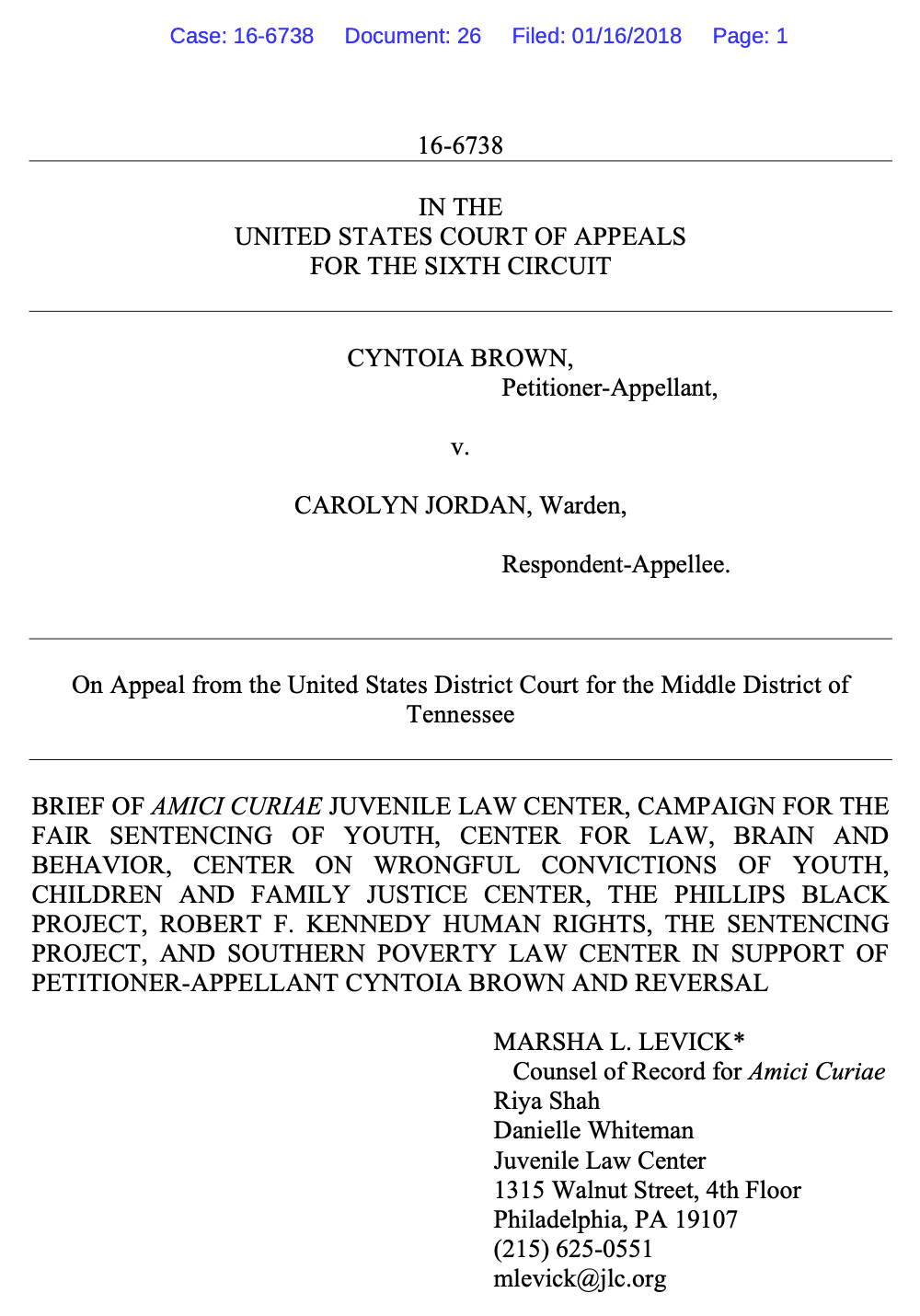
Summary of Argument
In 2005, Cyntoia Brown was a sixteen-year-old with a Fetal Alcohol Spectrum Disorder diagnosis when she was convicted of first-degree murder and sentenced to a mandatory term of life imprisonment. Tenn. Code Ann. § 39-13-202(c). Although the Tennessee Court of Criminal Appeals held that Cyntoia may be eligible for parole after serving 51 years of her sentence, a Tennessee Court of Appeals decision strongly calls into question whether she would ever be eligible for parole. See Brief of Appellant pp. 17-19. Even if she may request parole at age 68, her sentence unquestionably deprives her of a “meaningful opportunity to obtain release.” See generally Brief of Amicus Curiae, American Civil Liberties Union of Tennessee in Support of Appellant.
A meaningful opportunity for release must mean more than release in the twilight of one’s life with limited opportunity to experience life outside prison walls or to make meaningful contributions to one’s community. Eighth Amendment jurisprudence has clarified that the constitutionality of a sentence depends on the actual impact of the sentence upon the individual, not how a sentence is labeled. Sumner v. Shuman, 483 U.S. 66, 83 (1987). A sentence that merely offers geriatric release or, in the alternative, ensures that Cyntoia will die in prison is a mandatory life sentence that is disproportionate when imposed on a sixteen-year old.